DFTO Operator Ltd Chief Executive Robin Gisby is stepping back from the organisation that runs rail services on behalf of the government.
A briefing note to staff at DFTO, seen by RAIL, and understood to have been written by Gisby himself, states that he would be leaving the organisation when his fixed-term contract comes to an end in December. It’s unclear why he has decided to leave now, rather than wait until the formation of Great British Railways (GBR).
DFTO Operator Ltd Chief Executive Robin Gisby is stepping back from the organisation that runs rail services on behalf of the government.
A briefing note to staff at DFTO, seen by RAIL, and understood to have been written by Gisby himself, states that he would be leaving the organisation when his fixed-term contract comes to an end in December. It’s unclear why he has decided to leave now, rather than wait until the formation of Great British Railways (GBR).
Gisby, who is approaching 70 years of age, has been running both Directly Operated Holdings Ltd, (DOHL) later renamed DFTO, for seven years.
The note said: “I have been proud to lead and support the operators that were brought into the operator of last resort, transforming them into some of the top performing train operators in the UK.”
Under the government’s rail reforms DFTO now operates six former privatised train operating companies with three more (Greater Anglia and the two under the West Midlands Trains umbrella) due to join in October 2025 and February 2026 respectively.
The note added: “GBR is the right thing to do for passengers, employees and taxpayers and I will continue to support its creation and development.”
However, there has been criticism that early re-nationalisations, including Northern and Southeastern Trains has led to increasing levels of subsidy and, at Northern, industrial action hindered moves to improve performance.
DOHL blamed the increases in subsidy on a variety of factors, including fluctuating passenger demand and a smaller timetable post-COVID.
DFTO currently runs 28% if all passenger journeys in the UK and is responsible for a third of passenger miles running over 6,500 services each weekday.
Gisby’s briefing suggested that from April 2024 to March 2025 was a 7% increase in passenger journeys with revenue of £11.5 billion.
The note continued: “This growth and improvement on the way to GBR; an organisation that will unite track and train under one publicly owned body, consolidation of some functions from DfT, DFTO, 14 train operating companies and Network Rail into a single organisation.”
To manage the transition effectively it stated that key functions currently within the DfT will begin moving into DFTO by the end of this financial year.
The transition also includes selected functions from Rail Reform and Strategy Group and the Corporate Delivery Group. “By taking this step now we can ensure that we are managing change effectively,” and in a measured way, reducing risk, while planning for the future.” The briefing states.
The note goes on to say that bringing functions together will make Network Rail and DFTO the “twin engines of the frontline railway”, ahead of the creation in 2027 of GBR, “laying a strong foundation for successful collaboration and long-term improvement across the railway.”
Paying tribute to staff at DFTO it said: “The work you have done has been simply outstanding and now with the DfT colleagues transferring into DFTO we will be able to do even more. This is a hugely exciting opportunity for all of us.
“In making these changes now, we can ensure that when GBR comes online, it will offer the best service it can for the people that matter the most: Passengers, freight customers and taxpayers.”
But the note warned that there could be “significant risks” with so many changes happening at the same time and they could undermine public confidence. It says this could “derail the incredible progress we’re making on railway performance”.
“DfT and DFTO, with the support of ministers, have decided the best way to reduce these risks is to start moving the functions that GBR will need from the Department for Transport into DFT sooner than originally planned.
The DfT said there will be no redundancies as a result of moving 200-300 members of staff to DFTO.
Gisby first joined the railways in his twenties when he worked for Charterail, a GKN/British Rail joint venture.
He undertook various non-rail activities in the 1990s, before returning to the rail industry as Railtrack's Head of Freight. Staying at Railtrack, he served as zone Director London North Eastern and Anglia before moving to the Southern zone.
He later served as Director of Operations for Network Rail before becoming Chief Executive of DOHL/DFTO.
Login to continue reading
Or register with RAIL to keep up-to-date with the latest news, insight and opinion.



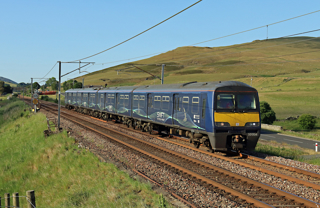
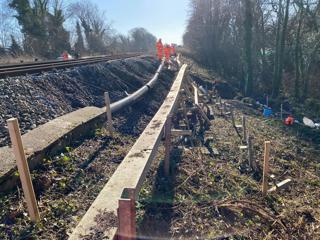
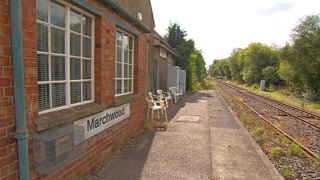
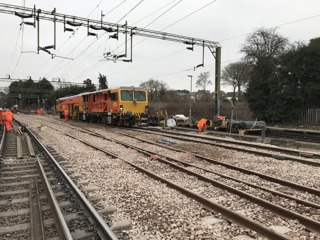
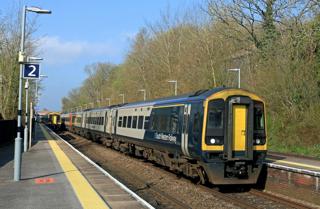












Login to comment
Comments
No comments have been made yet.